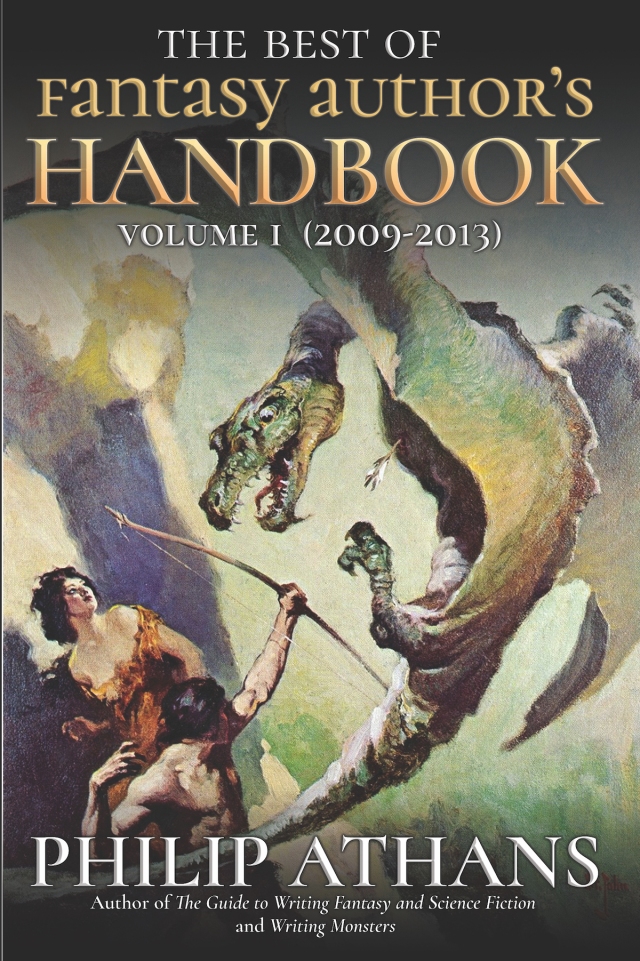When I’m editing a work of prose fiction (a novel or short story) I tend to use “bookish” terminology because, y’know… that’s what I’m actually working on. But in one case I do tend to fall back on a movie term: off screen.
Something that happens “off screen” is something that we (the readers) hear has happened—a character tells another character about it, or worse, it’s covered in description as having happened—but we don’t actually see that moment played out in the narrative.
There are reasons to employ this. For instance, it is a staple of first person narratives since if the first person POV character wasn’t there at the time to see it happen, we can’t have seen it happen either. And then, of course, there are moments that are worth noting in passing, but aren’t really all that important, and might end up feeling over-stressed if a whole scene is devoted to that moment. If a character goes home after the shootout, changes out of her bloody clothes, takes a shower, then has a cup of coffee before going back to the stationhouse, that will explain why a little time has passed and she’s no longer drenched in blood. Its brevity conveys something about what that character was feeling. This says she’s generally fine and just getting cleaned up. The shootout was not really that big a deal. Now that “off screen action” is supporting her characterization… as a sociopath?
Okay, so I’m absolutely not saying you have to show everything, and indeed have advised in these pages that you don’t do that, there are times where I’ve seen this go terribly, terribly wrong, as in The Mote in God’s Eye, in which a massive turning point in the story, and in the imagined world of human science and culture, is skipped right over and then reported, rather dryly, by one character describing the incident to another. I wrote about this here, which is also now part of the first volume of The Best of Fantasy Author’s Handbook.
How do we solve this dilemma then, if some things are okay to leave having happened off screen, and others are not?
As with most decisions as to what to write and what not to write (in fiction) it comes down to the question of emotional content and context.
That scene in The Mote in God’s Eye was clearly important. The experience of the characters who captured then opened the first alien starship ever encountered had to have actually mattered to them, and so, therefor, to the story.
But it’s not always that obvious. Expanding on my above example, could this work?
Marsha went home, had a good cry in the shower, and figured she’d just throw the bloody uniform away. A cup of coffee later and she was back at the stationhouse.
Though that might have been intended as a quick transition between two scenes, and one that gives Marsha some human empathy, this is exactly what we’re talking about when we talk about show vs. tell. These two sentence tell us what Marsha did, but they go no deeper—or not much deeper—than that. This is reporting. Marsha did this, then did that while doing something else, did another thing, then another thing, then went somewhere.
Understood.
But we read fiction for more than simple understanding. A 200-word newspaper article can tell us something has happened in a way we can easily understand. That’s great. That’s good reporting. But it’s terrible fiction writing.
For the record, I don’t need full details of Marsha taking a shower in that (to use one more movie reference) 1990s “erotic thriller” sort of way. But what, exactly, is “a good cry”? People cry for lots of reasons, even for lots of reasons following a specific incident like a shootout. Marsha is a cop, right? Is she crying because one of her fellow officers was shot and killed? What does she feel, exactly, about that fellow officer? Is she upset about other victims, disappointed or ashamed of something she did or didn’t do…?
We’re not reading this fictional work of crime fiction for a list of events, we’re reading it to feel what it’s like to be a cop investigating whatever it is she’s investigating, to feel what it’s like to be in a shootout, and feel the full effects of the emotional/psychological moment—and aftermath—of that traumatic event.
Marsha went here, did that, then did something else, is plot—an absolutely necessary component of any story.
What Marsha experienced, learned, felt along the way is what transforms that plot into a story.
Keep that in mind not just in deciding what moments to show and which to skip, but in everything you’re doing in every scene.
Ask: Does this moment have the emotional weight necessary to carry a scene?
If the answer is anything but an unequivocal no, write the scene.
And what the hell, if it turns out you were wrong, you can cut it later.
—Philip Athans
Did this post make you want to Buy Me A Coffee…
Follow me on Twitter @PhilAthans…
Link up with me on LinkedIn…
Friend me on GoodReads…
Find me at PublishersMarketplace…
Check out my eBay store…
Or contact me for editing, coaching, ghostwriting, and more at Athans & Associates Creative Consulting?
As an Amazon Associate I earn from qualifying purchases.



